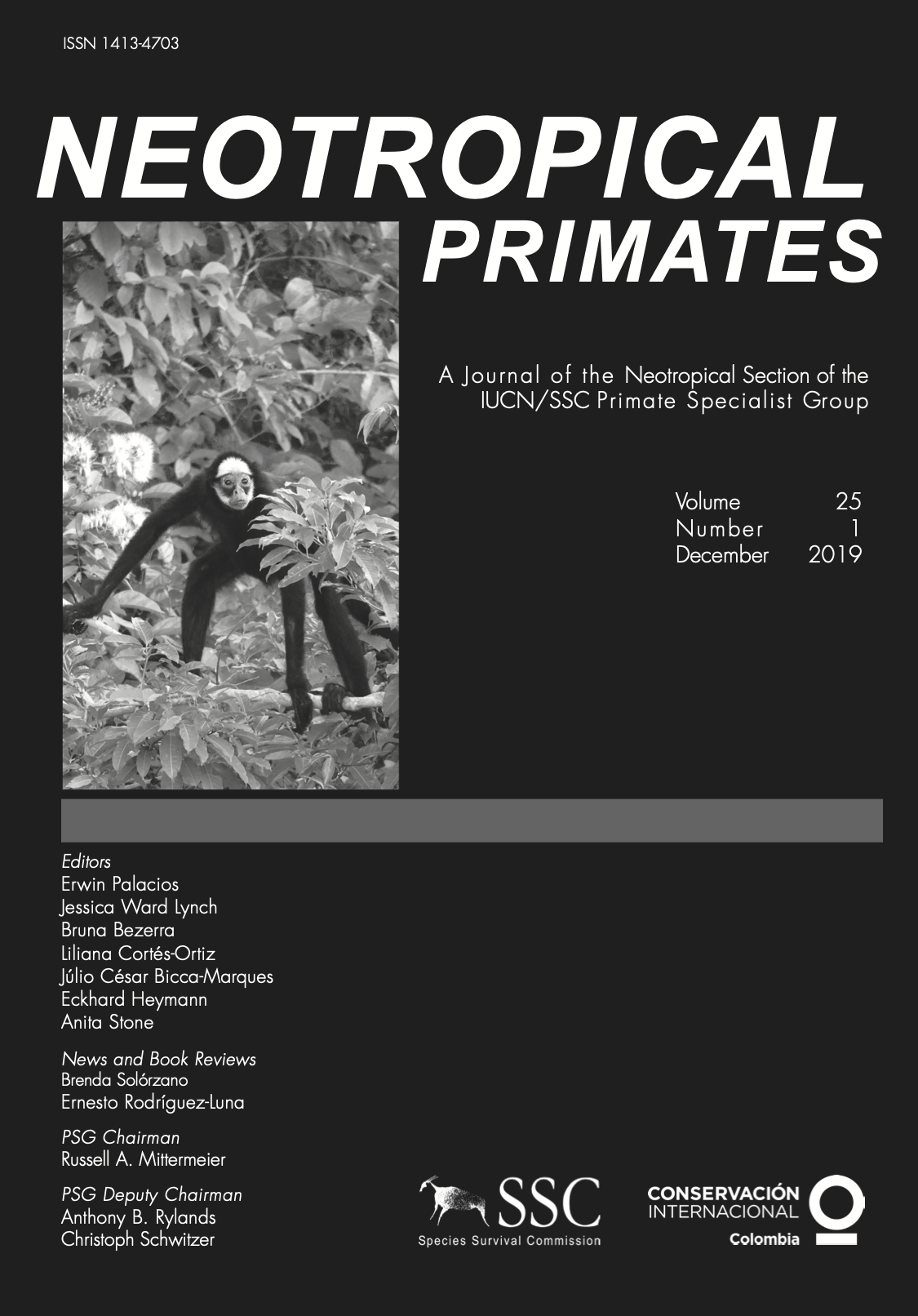Prolonged inter-specific association between Ateles fusciceps fusciceps and Alouatta palliata aequatorialis (Atelidae) in a forest fragment in north western Ecuador
DOI:
https://doi.org/10.62015/np.2019.v25.87Keywords:
Primate behavior, habitat disturbance, symbiosis, adaptationAbstract
Changes in the behavior of primates caused by habitat disturbance are important indicators of their survival ability in fragmented landscapes. In Ecuador, few studies have examined the effect of habitat fragmentation on primate behavior. We present data of a prolonged interspecific association between a brown-headed spider monkey (Ateles fusciceps fusciceps) living within a troop of Ecuadorian mantled howler monkeys (Alouatta palliata aequatorialis) in a protected forest fragment in northwestern Ecuador. We collected 274 hours of observations, at 10-minute intervals, on the A. f. fusciceps individual in both the wet and dry seasons. Data included the amount of time that the A. f. fusciceps individual spent associating with, and apart from, the A. p. aequatorialis troop. Our observations suggest a close relationship between the individuals of the two species, with similarities in their behavior and diets found during the study. Interspecific communication was observed frequently, with all A. p. aequatorialis individuals interacting directly with the A. f. fusciceps individual. The behavior of the A. f. fusciceps individual was similar to that found in studies of other Ateles spp. living in fragmented and disturbed habitats, but differed from that observed in other studies of the same species in continuous forest, suggesting adaptation to conditions in fragmented habitat and possibly to living in close proximity with the howler troop.

Downloads
Published
Issue
Section
License

This work is licensed under a Creative Commons Attribution-NonCommercial-ShareAlike 4.0 International License.


